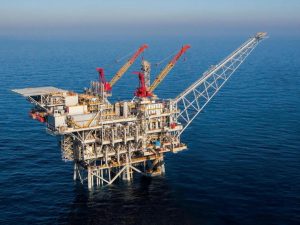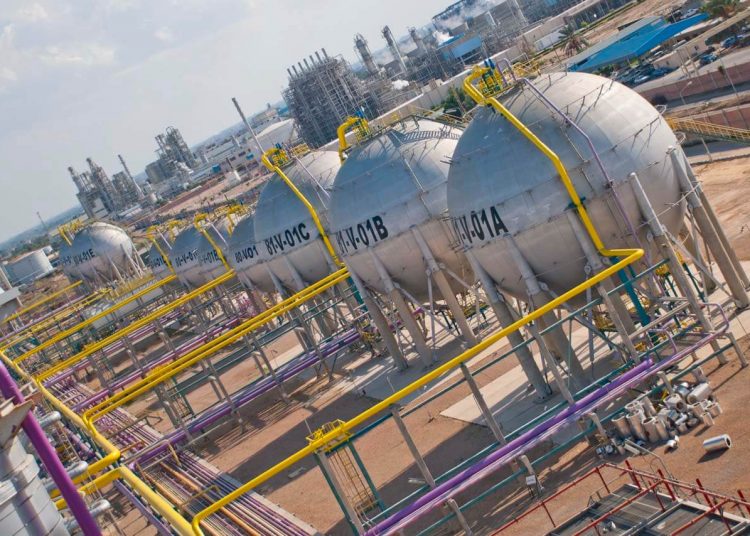Wael Salem
The oil and gas industries have gone from strength to strength over the past ten years thanks to economic reform policies to bring the sector out of the red.
Accomplishments
The bottom line for oil in 2018-2019 read LE631 million. Now it stands at LE5.1 billion. Oil exports rose 41 per cent from $13 billion in 2021 to $18.3 billion in 2022. Natural and liquefied gas exports increased 154 per cent from $3.9 billion two years ago to $9.9 billion last year. The sector generated total revenues of LE24.5 billion for the state treasury for fiscal year (FY) 2021-2022, despite the Russian-Ukrainian war. Five years previously, oil and gas had lost LE77.4 billion.
Natural gas and oil refining growth shifted to the right from –11 per cent in FY 2018-2019 to 25 per cent, heralding a new era in self-sufficiency in gas and exports.
Oil projects
Between July 2014 and June, 2023 $61.3 billion was invested in the development of natural gas and crude oil fields, refining, petrochemicals, pipelines, storage depots, domestic supplies and both petrol and natural gas filling stations.
Fresh int’l investments to search for oil, gas
According to a recent statement by the Ministry of Petroleum and Mineral Resources, state-owned oil companies put out an international tender for exploration in 23 new areas in the Western Desert, the Eastern Desert, Gulf of Suez and the Red Sea. By 2025, some 35 exploratory natural gas wells will be sunk in the Mediterranean and the Nile Delta at a cost of $1.8 billion. It is expected that $9 billion (LE277 billion) will be invested in oil and natural gas in FY 2023/2024.
New natural gas wells
Over the last five years, 576 exploratory natural gas wells were sunk and 289 gas and petroleum discoveries were made in partnership with international companies.
Twelve international bids were offered from July 2014 to June 2023 to prospect in the onshore and offshore areas of the Mediterranean Sea, the Red Seas, the Delta, the Western and Eastern Deserts, the Gulf of Suez and Upper Egypt. This comes in addition to old fields in the Gulf of Suez and the Eastern Desert. Five international tenders were made for the Egypt Upstream Gateway (EUG).
Big name firms were awarded contracts with a minimum investment of $2.6 billion. Bids are still being received for oilfields in the Gulf of Suez and the Eastern Desert.
Agreements worth a total $22.3 billion with international companies have been signed for new oil exploration. A signature grant of $1.3 billion has been awarded to drill 452 exploration wells.
This bodes well for investment as ExxonMobil, Chevron, Qatar Energy, Eni, Shell and BP are among the many companies that are already working in partnership with the Egyptian oil and gas sector.
Efforts to put Red Sea, Med. areas on global investment map
Putting the Red Sea region of the investment map is high up on the sector’s agenda, now that maritime borders with Saudi Arabia have been clearly fixed.
This means three international companies that are working in three areas on a technical programme with the latest technology to meet the challenges of the Red Sea.
Also, the West Mediterranean region is on the investment after a seismic survey, which attracted the like of ExxonMobil, Chevron, Shell, Total and BP to step in after signing seven agreements for gas prospecting in that area.
The sector has signed 126 contracts for new oil discoveries in the Mediterranean, the Western and Eastern Deserts, and the Gulf of Suez.
Meanwhile, 35 natural gas fields in the Mediterranean Sea and the Nile Delta with a total investment of $1.6 billion are to being drilled as of FY 2022-2023 until the end of 2024-2025.

Towards self-sufficiency
Oil resources have produced 273 million tons of crude oil and condensates, 389 million tons of natural gas, and 11 million tons of butane gas — apart from butane as the refinery byproduct.
Natural gas production rose 57 per cent in FY 2020-2021.
Consequently, self-sufficiency was achieved by the end of September 2018 and liquefied natural gas imports were halted. The savings in hard currencies were considerable as a result and Egypt became an oil and gas exporter in 2022.
Global rankings
Egypt was in 18th place for natural gas production in the Middle East and North Africa (MENA) in 2015. Now it ranks second. Oil production is at its highest ever today with 1.9 million barrels per day of crude oil, gas and condensates.
Meanwhile, developments of North Sinai fields (third phase), phase ten of the West Delta deep water, West Burullus and Safa Oil field are currently underway at a total cost of $1.9 billion dollars.






Discussion about this post